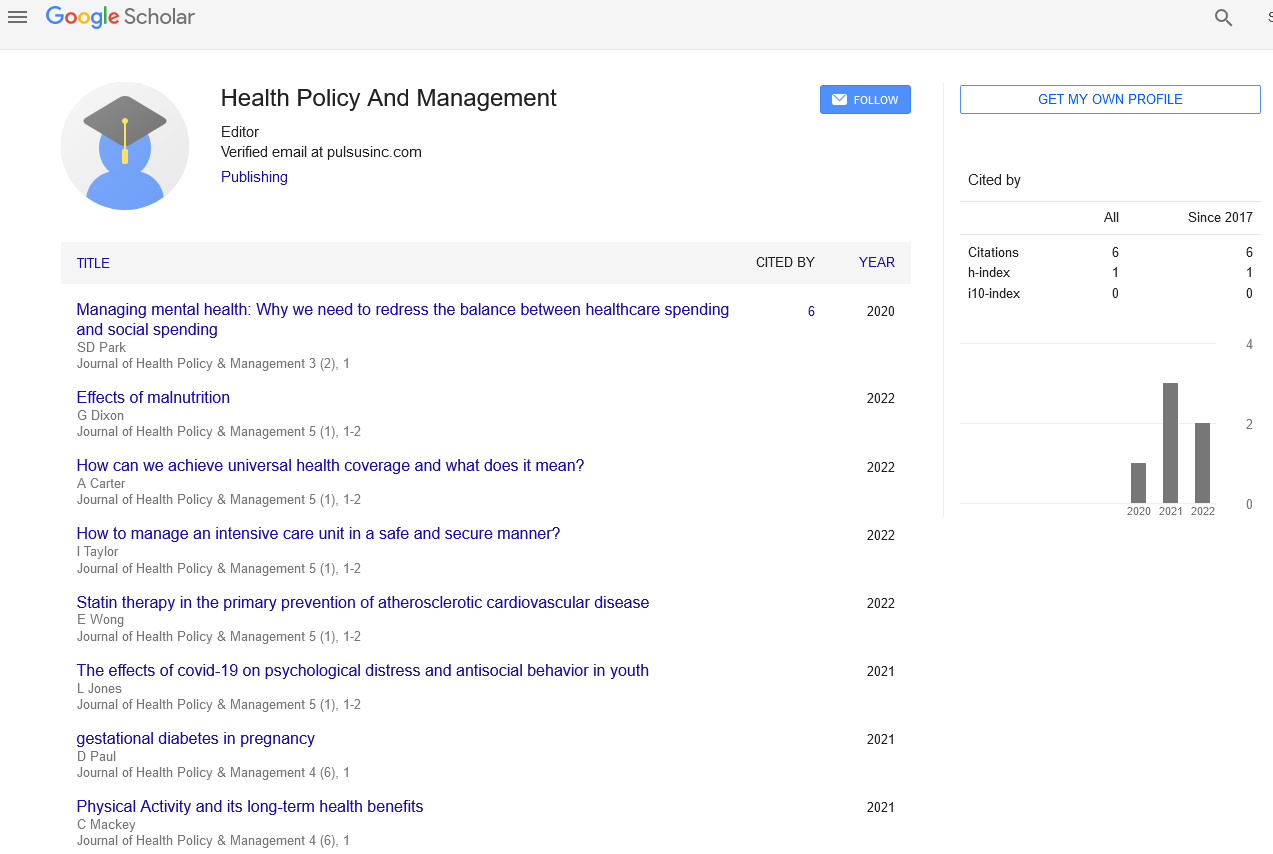
Sign up for email alert when new content gets added: Sign up
The COVID-19 Vulnerabilities and the Ubiquitous Artificial Intelligence Linkages
9th International Conference on Global Healthcare
November 21, 2022 | Webinar
Bongs Lainjo
Cybermatic International, Canada
ScientificTracks Abstracts: J Health Pol Manage
Abstract :
Aim: The study aims to conduct an exploratory review of the Covid-19 pandemic by focusing on the theme of Covid-19 pandemic morbidity and mortality, considering the dynamics of artificial intelligence and Quality Of Life (QOL). A review of the literature, anecdotal evidence and reports on the morbidity of COVID-19, including the magnitude of its destructive consequences in nations such as the United States, Africa, the United Kingdom, China and Brazil, among others, were used in this research work. This study revealed that vulnerable populations feel the coronavirus's destructive impacts more ferociously. The elderly, front-line workers, marginalized populations, visible minorities and others are among them. The issue in Africa is particularly formidable due to a lack of infrastructure and financial and human resources. Furthermore, scientists are effectively employing AI technology to improve the creation of vaccinations and pharmaceuticals. The pandemic also helped us recognize the necessity of interpersonal cooperation and shared ideals. The importance of healthcare workers and other frontline workers in reacting to the epidemic is also recognized. In addition, new techniques and effective health interventions are critical in treating the crisis's negative impacts. This highlights the lessons that must be learned from the pandemic to deal with future waves of epidemics as efficiently as possible. One of these future implementations is ensuring the health and well-being of the elderly. Another crucial future implication is to use AI capabilities best to combat the pandemic at all phases. Current findings indicate that scientists are effectively employing AI technology to improve the creation of vaccinations and pharmaceuticals. Given the contemporary and available literature, there is every indication that the impact and implication of AI applications, specifically in drug manufacturing, have a significant role in technologically accelerating the complex and routine processes currently executed manually and mechanically. The arrival of COVID-19 has opened the gateway with a potential roadmap that is both compelling and driven by evidence-based science. Keywords: Covid-19, quality of life, strategies, lessons learned, artificial intelligence linkages, vulnerable populations, vaccinations, pharmaceuticals Recent publications 1. Lainjo, Bongs. (2022). Application of Machine Learning in Predicting the Number of Bike Share Riders. International Journal Business, Management and Economics, 3(4). 339 - 370. DOI: https://doi.org/10.47747/ijbme.v3i4.865 2. Lainjo, Bongs. (2021). Sustainable Program Management: Hierarchical Causal Systems 3. Lainjo B. The Enigmatic COVID-19 Vulnerabilities and the Invaluable Artificial Intelligence (AI). J Multidiscip Healthc. 2021 Aug 27;14:2361-2372. doi: 10.2147/JMDH.S321751. PMID: 34475763; PMCID: PMC8407667.
Biography :
Bongs Lainjo, MASc, Engineering, is an RBM systems consultant with expertise in program evaluation. He is a former UN Senior Advisor of Program Management, Reproductive Health Commodity Security (RHCS) and Evaluation. Prior to that, he worked for USAID as a Logistics and Management Information Systems Advisor (LISA). He also served as COP/Senior Data Management Advisor for Columbia University after spending close to a decade teaching as a professor at a number of Canadian academic institutions. He has worked in several countries in Africa, Asia, Pacific Island Countries, Canada and the U.S.




